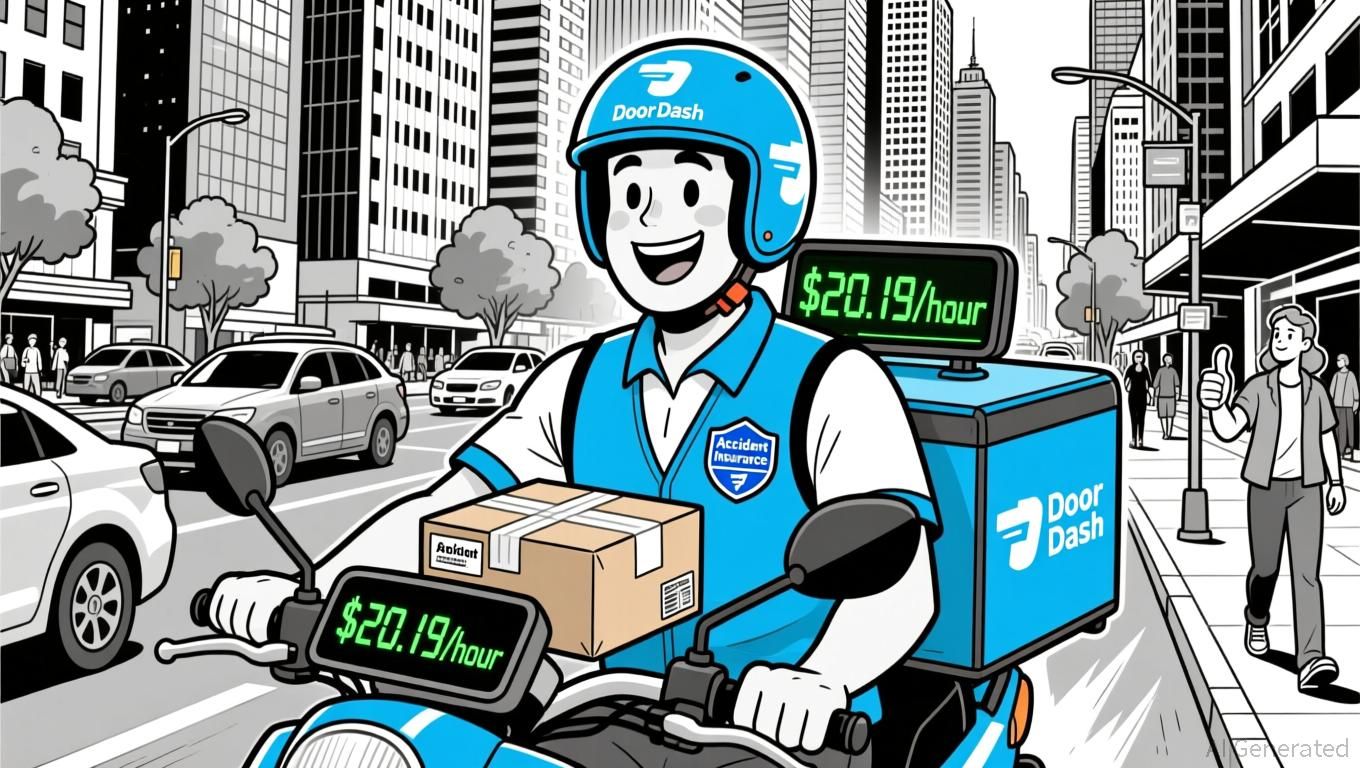Global investors are drawn to South Africa's attractive high returns, even as they weigh the associated risks
- South Africa's inflation-linked bonds attract global investors, reflecting confidence in high-yield opportunities despite economic challenges. - Coca-Cola HBC's $3.4B acquisition of CCBA highlights Africa's growing appeal, though raises concerns over local ownership and job security. - The Reserve Bank warns of competitiveness risks from Trump's tariffs, urging structural reforms and trade diversification to sustain investor trust. - A $100M plan to revive Formula 1 racing aims to boost economic visibili
South African government bonds have become increasingly attractive to international investors, as demonstrated by the recent sale of 1 billion rand ($57.76 million) in inflation-linked securities. This auction, featuring bonds maturing in 2033, 2046, and 2050, signals strong investor faith in South Africa’s fiscal management, even as the country faces broader economic headwinds. The trend mirrors a wider movement of foreign capital into South Africa, fueled by the nation’s comparatively higher yields when set against the more cautious markets of Europe and North America.
This growing interest is part of South Africa’s broader economic evolution. Notable deals, such as Swiss-based Coca-Cola HBC’s $3.4 billion purchase of Coca-Cola Beverages Africa (CCBA), illustrate the continent’s rising appeal to global corporations, according to

In light of these changes, the South African Reserve Bank has stressed the importance of structural reforms to maintain investor confidence, especially after U.S. President Donald Trump imposed 30% tariffs on South African exports—the highest in sub-Saharan Africa. The central bank cautioned that, without greater diversification and productivity improvements, South Africa could lose its edge in global supply chains, particularly in the automotive and agricultural industries. However, the bank also pointed out that advancing the African Continental Free Trade Area agreement could help strengthen trade resilience.
The government is also launching major initiatives to boost economic growth. Among them is a $100 million campaign to bring Formula 1 racing back to South Africa, with Minister Gayton McKenzie seeking backing from six companies to sponsor races over a three-year period. Although the project faces significant logistical and financial obstacles, it is part of a broader effort to use international events to enhance economic visibility, similar to the strategy behind the 2010 FIFA World Cup.
Nonetheless, obstacles persist. The recent bond sale, while a success, comes amid tight fiscal conditions and a debt-to-GDP ratio above 60%. Experts warn that sustaining investor interest will require a careful balance between immediate fiscal restraint and ongoing structural changes. Meanwhile, the Coca-Cola HBC deal has raised concerns about job security in South Africa, with labor unions cautioning that the merger’s restructuring could lead to layoffs, according to the Reuters report.
As South Africa steers through these challenges, the relationship between foreign investment, policy changes, and domestic priorities will be crucial in determining its future. For now, the combination of attractive bond yields and strategic business deals continues to capture global attention, offering a cautious sense of optimism amid economic complexity.
Disclaimer: The content of this article solely reflects the author's opinion and does not represent the platform in any capacity. This article is not intended to serve as a reference for making investment decisions.
You may also like
DASH drops 4.37% within 24 hours following Australian wage agreement
- DoorDash's stock fell 4.37% in 24 hours amid a 25% wage hike agreement for Australian delivery workers, including mandatory accident insurance. - The deal raises near-term cost concerns as operating margins stand at 5.5%, but reflects improved labor standards and regional commitment. - Institutional ownership rose to 90.64% with major investors increasing stakes, signaling long-term confidence despite recent volatility. - Analysts maintain a "Moderate Buy" rating ($275.62 target) as DoorDash shows strong

Ethereum Updates Today: Privacy First: Buterin Backs Messaging’s Fundamental Transformation
- Vitalik Buterin donates 128 ETH ($390K) to Session and SimpleX to advance metadata privacy and permissionless design. - Platforms use decentralized infrastructure and cryptographic IDs to protect communication metadata, resisting censorship and AI surveillance risks. - Donation counters regulatory threats like EU's Chat Control while promoting privacy-focused innovation in encrypted communication. - Experts emphasize permissionless account creation as critical for digital freedom, despite trade-offs like

Bitcoin News Update: Growing Optimism Faces ETF Withdrawals: The Delicate Balance of Crypto Stability
- Crypto markets show fragile stabilization as Fear & Greed Index rises to 20, but Bitcoin remains 30% below October peaks amid $3.5B ETF outflows. - Stablecoin market cap drops $4.6B and on-chain volumes fall below $25B/day, weakening Bitcoin's liquidity absorption capacity. - Select altcoins like Kaspa (22%) and Ethena (16%) gain traction while BlackRock's IBIT returns $3.2B profits, signaling mixed institutional confidence. - Technical indicators suggest tentative support at $100,937 for Bitcoin, but So

BCH Rises 0.09% as Momentum Fuels Outperformance
- BCH rose 0.09% in 24 hours but fell 4.22% in seven days, yet gained 22.72% annually. - It outperformed its Zacks Banks - Foreign sector with 0.66% weekly gains vs. -2.46% industry decline. - Earnings estimates rose twice in two months, boosting consensus from $2.54 to $2.56. - With a Zacks Rank #2 (Buy) and Momentum Score B, BCH shows strong momentum potential. - Annual 63.46% gains and positive revisions solidify its position as a top momentum stock.
